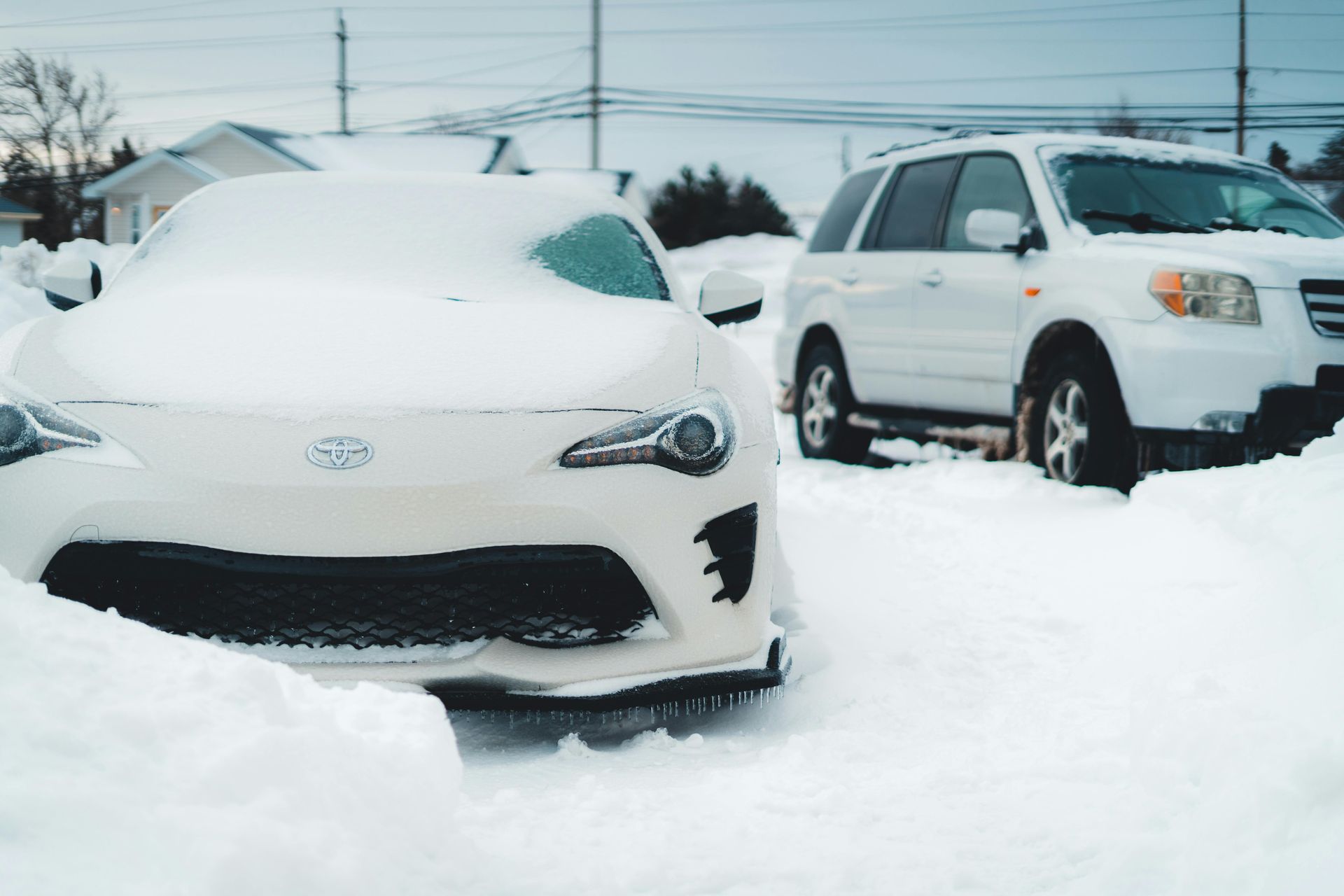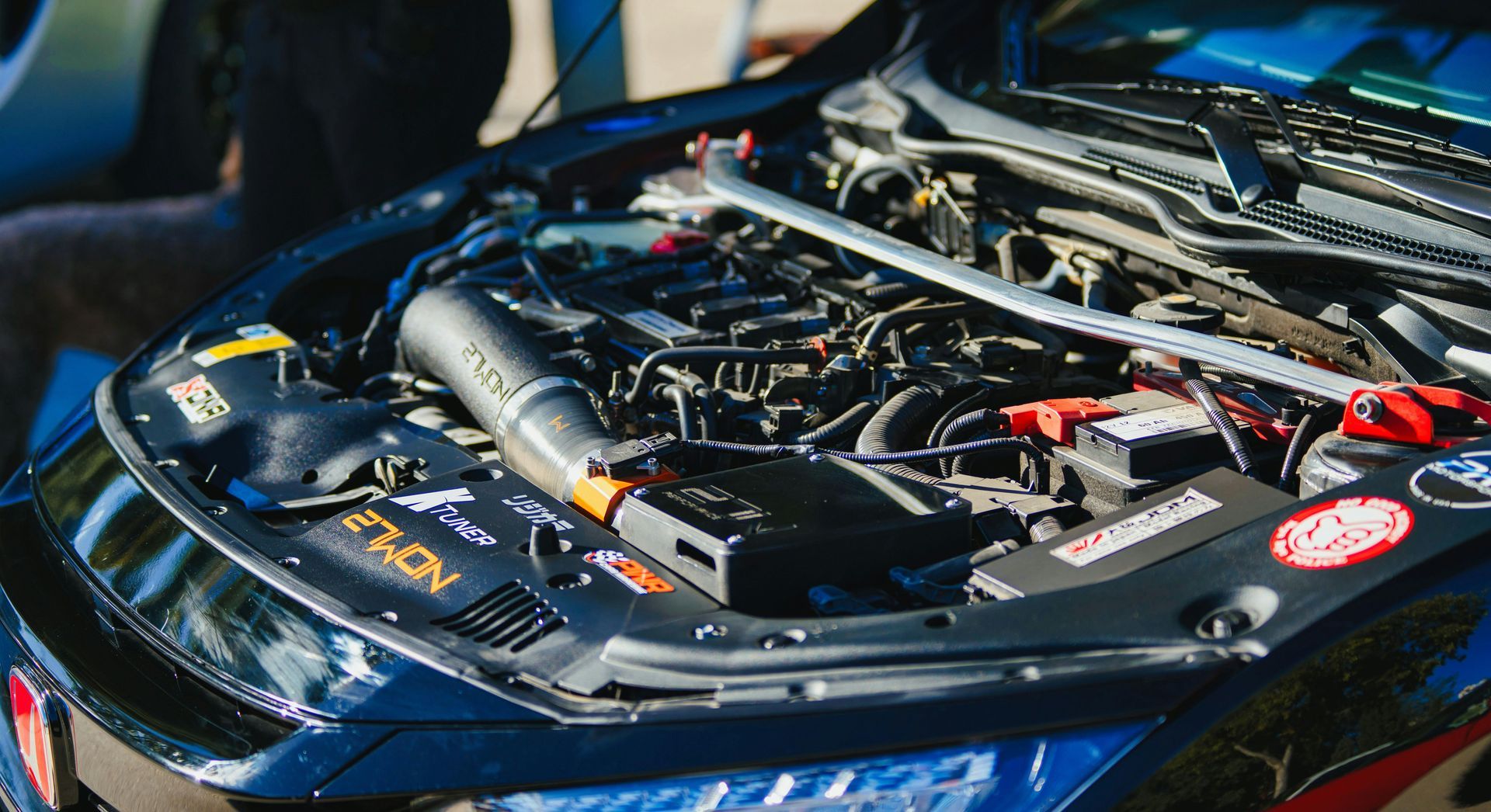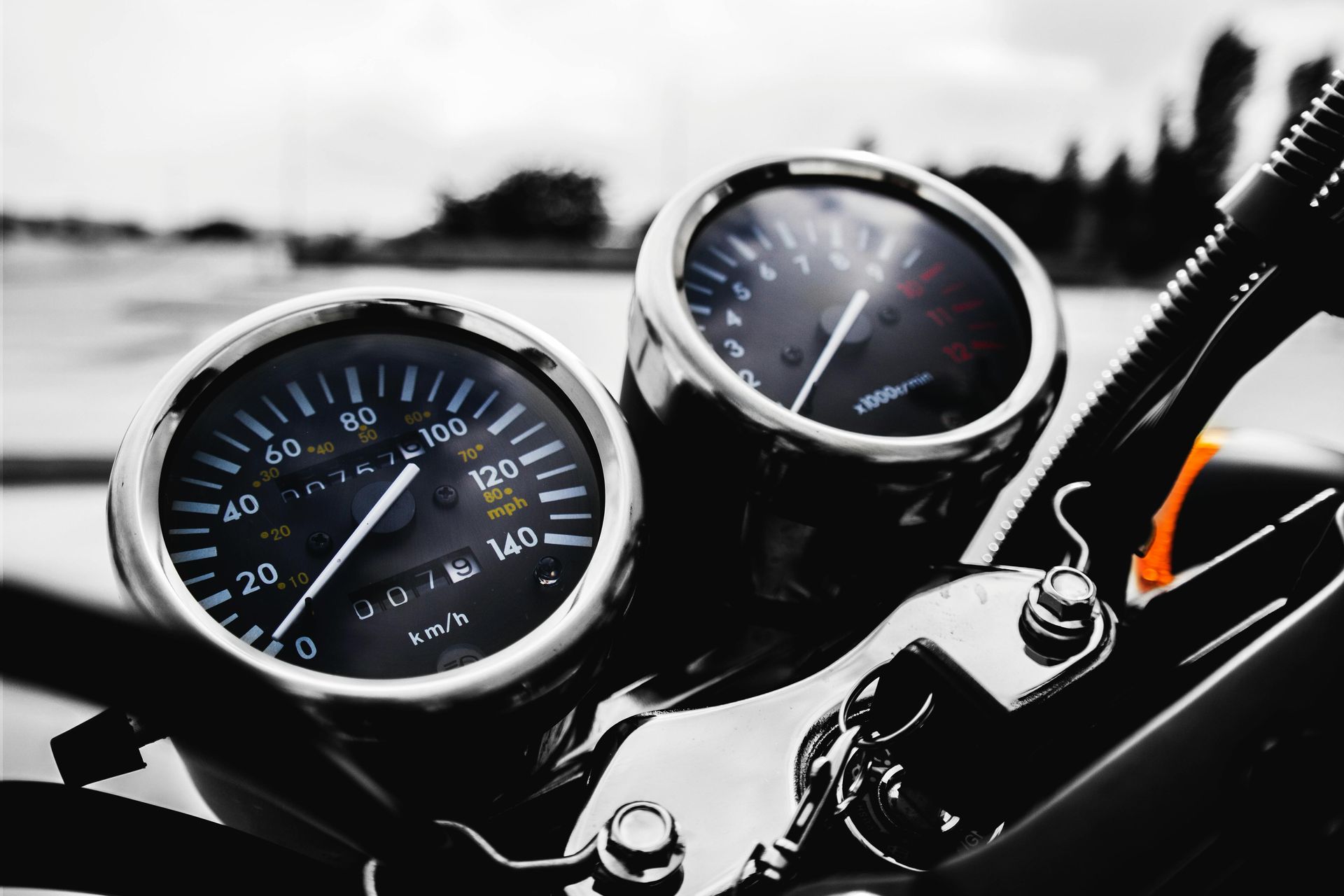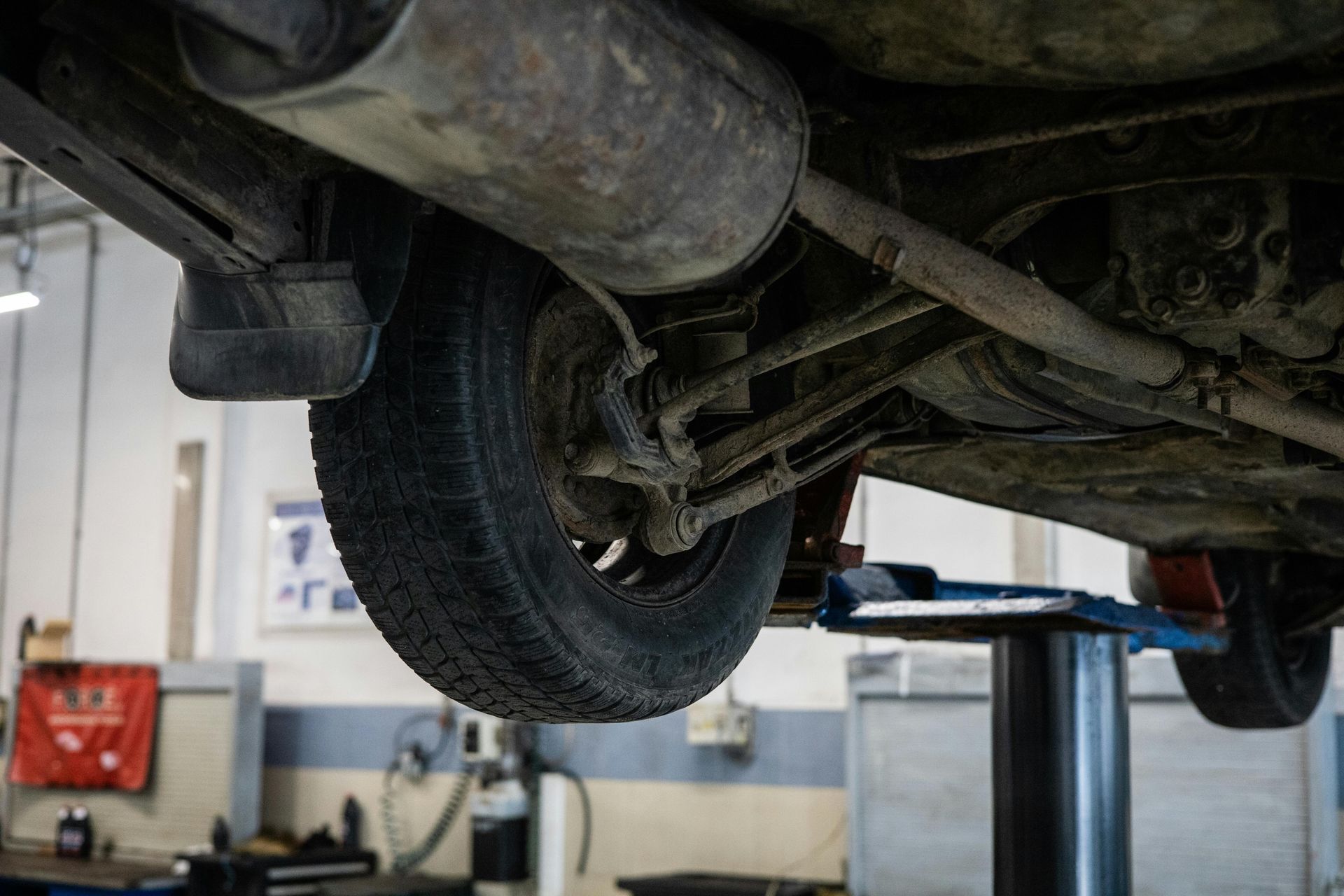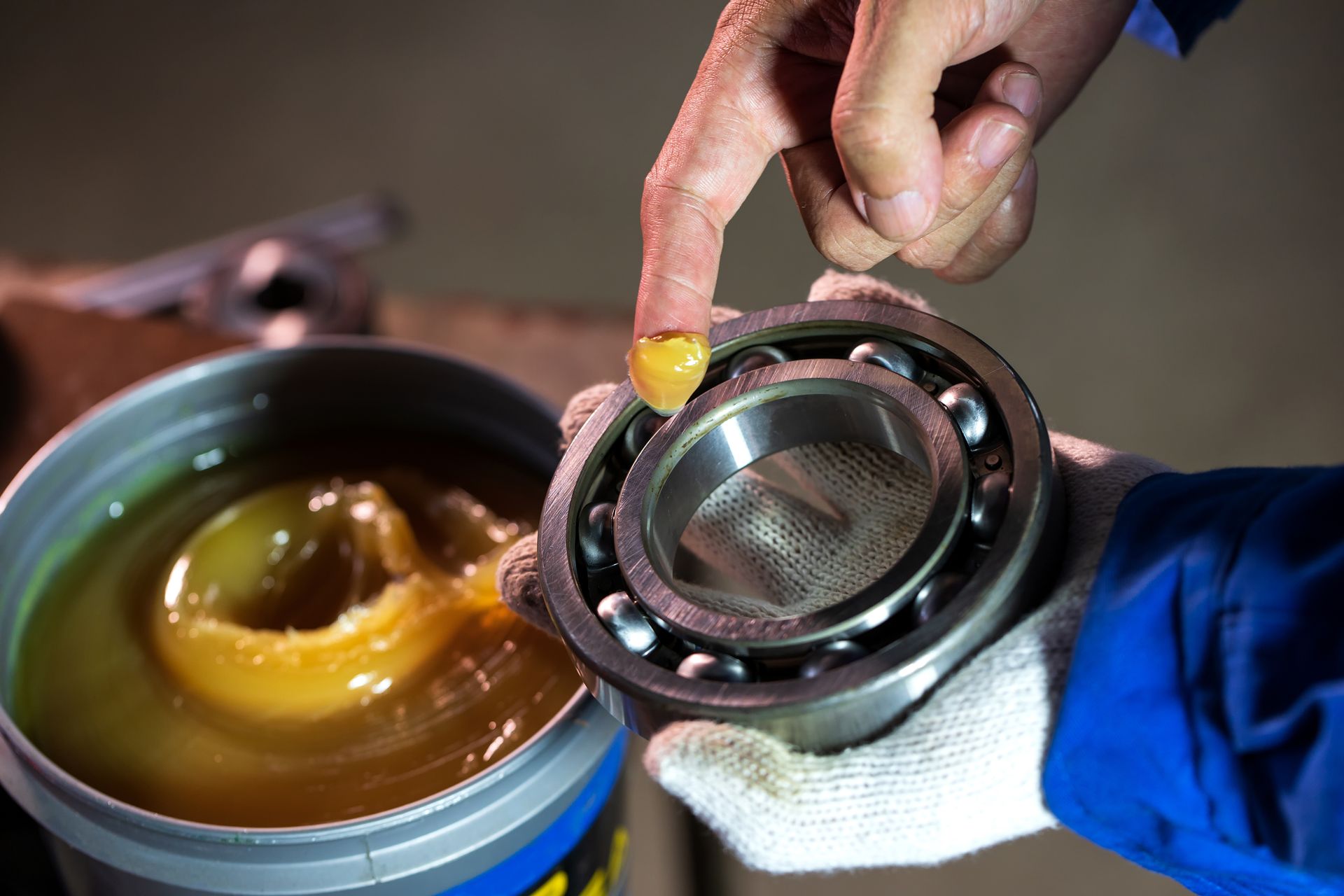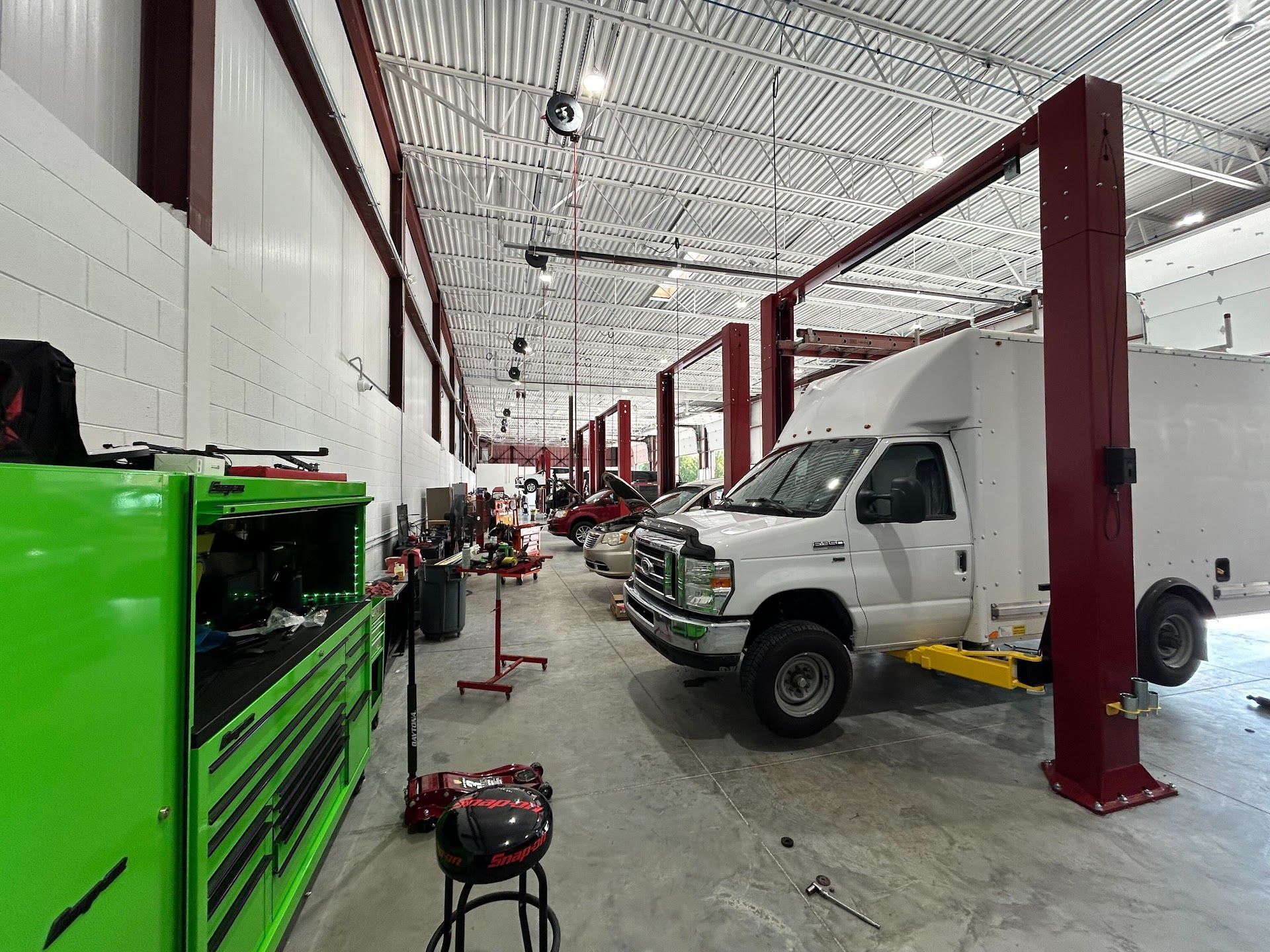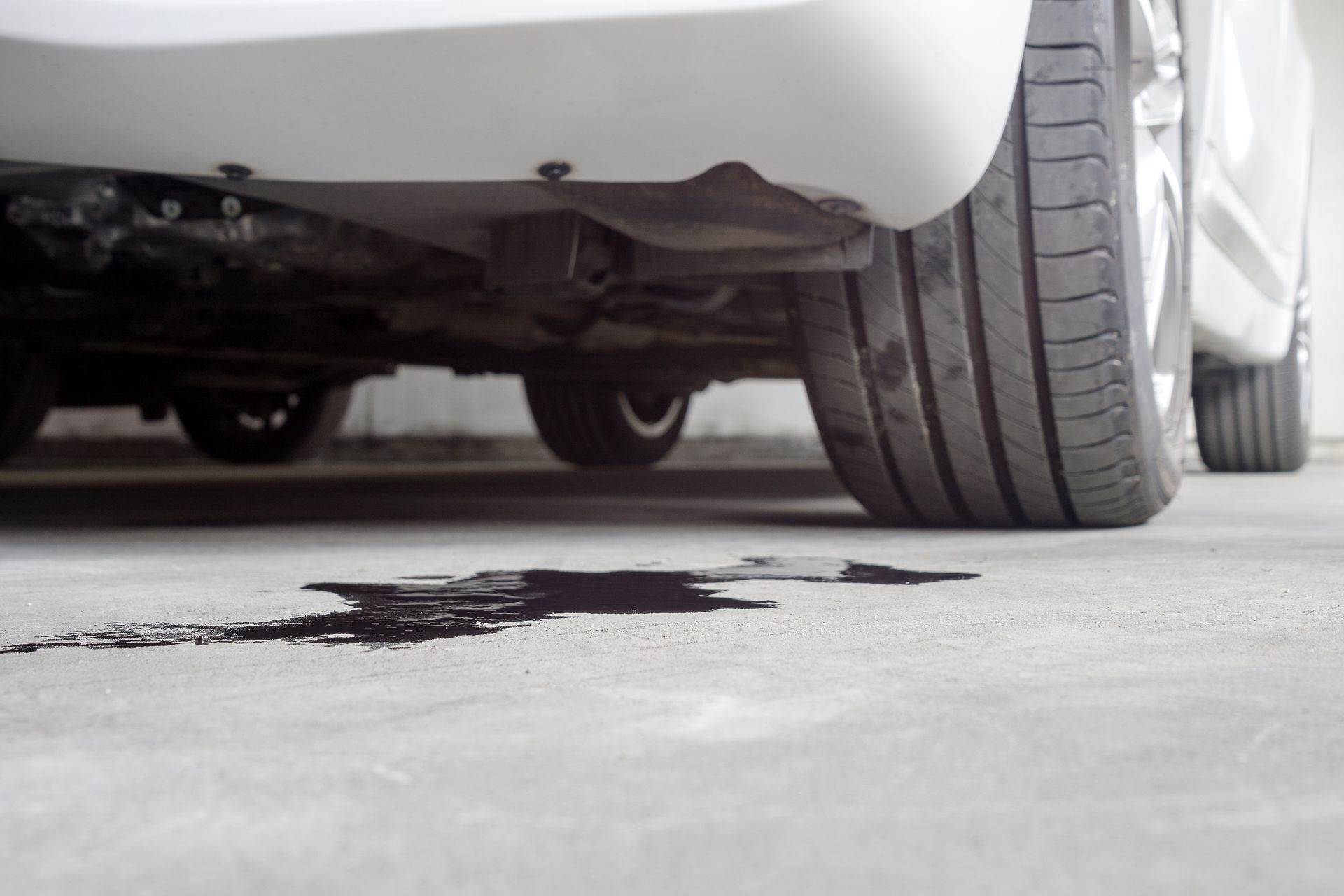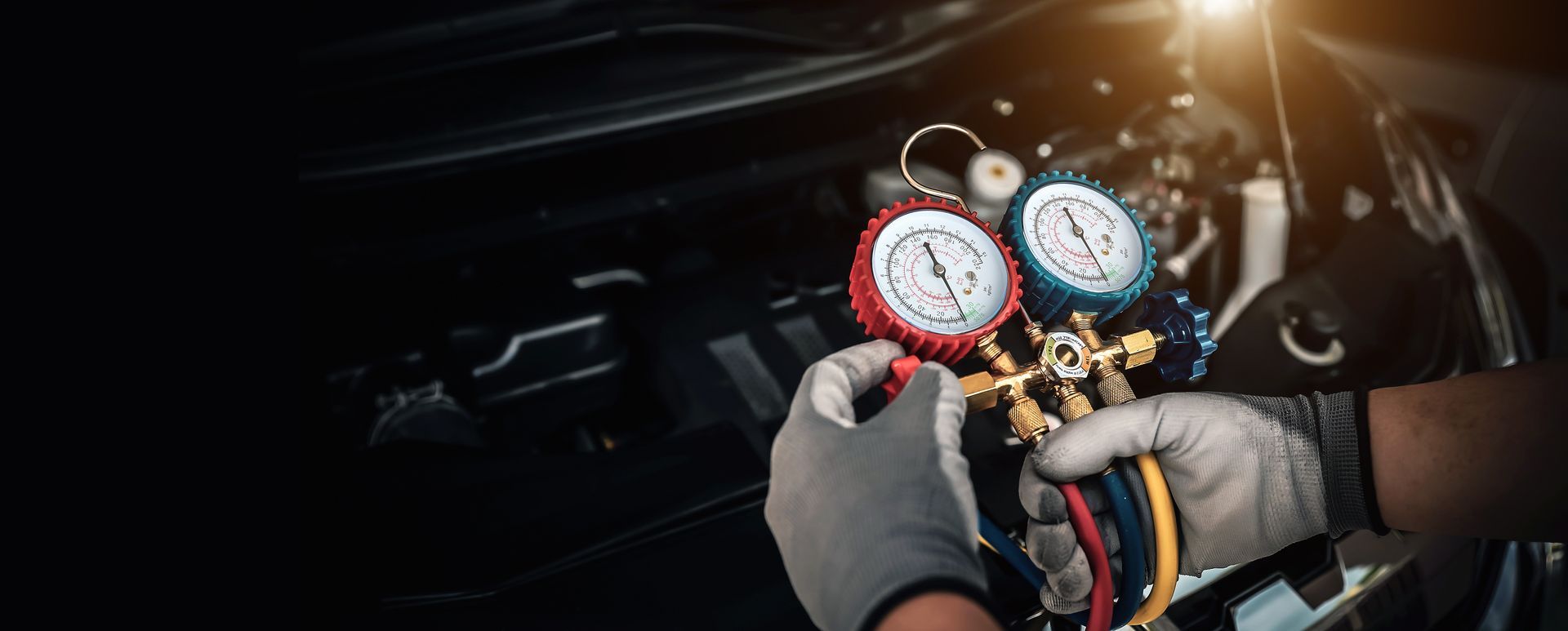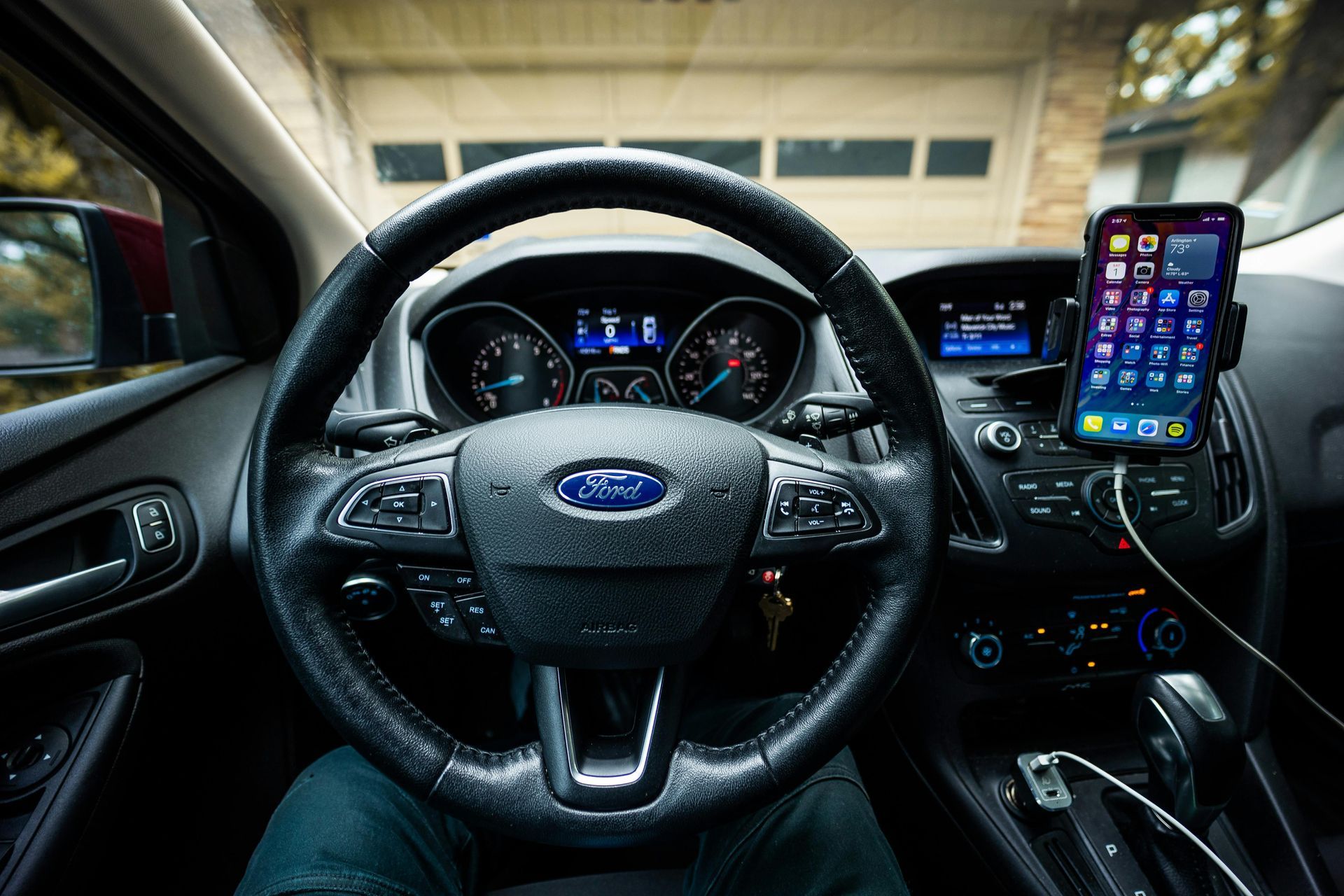Common Cooling System Problems: Warning Signs You Shouldn't Ignore
Is Your Vehicle Overheating? Here's Why
Your vehicle's cooling system is its lifeline against the extreme heat generated by your engine. When operating properly, this system maintains the perfect temperature for optimal performance. However, when cooling problems arise, they can quickly lead to costly repairs and roadside breakdowns, especially during Michigan's hot summer months.
At Auto DR, we've helped countless Macomb and St. Clair County drivers resolve cooling system issues before they become major expenses. Here's your comprehensive guide to understanding, identifying, and addressing the most common cooling system problems.
Top 5 Cooling System Issues That Lead to Engine Overheating
1. Coolant Leaks and Low Fluid Levels
Bright green, orange, or pink puddles under your vehicle are the first sign of coolant leaks. These leaks can occur anywhere in the system, from cracked radiator cores to deteriorating hoses and gaskets.
Warning Signs to Watch For:
- Visible puddles under your parked vehicle
- Sweet smell coming from the engine compartment
- Consistently low coolant levels in the reservoir
- White smoke from the exhaust
- Rising temperature gauge during normal driving
Low coolant is the most common cooling system problem we see in Michigan vehicles. Even a small leak can quickly lead to an overheating engine, especially in stop-and-go summer traffic.
2. Radiator Damage and Blockages
Your radiator is the heart of your cooling system. When it becomes clogged with debris, corroded internally, or damaged from road hazards, your engine's temperature can rise dangerously fast.
Common Radiator Problems Include:
- External damage from road debris
- Internal corrosion from contaminated coolant
- Clogged passages preventing proper coolant flow
- Failed radiator caps causing pressure loss
- Damaged or malfunctioning cooling fans
Many radiator issues develop gradually, making regular inspections essential for catching problems early. Our certified technicians at Auto DR use specialized equipment to pressure test your radiator and identify even small leaks before they become major concerns.
3. Thermostat Failures
Your vehicle's thermostat regulates coolant flow between the engine and radiator. When it malfunctions, it typically gets stuck in either the open or closed position:
Problems if your car thermostat is stuck closed:
- Prevents coolant from flowing to the radiator
- Causes rapid engine overheating
- Temperature gauge rising quickly into the red zone
- Complete engine shutdown if not addressed
Problems if your car thermostat is stuck open:
- Continuous coolant flow even when engine is cold
- Difficulty reaching proper operating temperature
- Poor heater performance in winter
- Reduced fuel efficiency
- Check engine light is on
Thermostat failures are particularly common during seasonal transitions in Michigan, where temperature fluctuations put extra stress on these components.
4. Water Pump Malfunction
The water pump circulates coolant through your engine and radiator. When it fails, coolant stops flowing properly, and your engine temperature rises quickly.
Signs Your Water Pump Is Failing:
- Whining or grinding noises from the front of the engine
- Coolant leaks from the water pump housing
- Engine overheating despite adequate coolant levels
- Fluctuating temperature gauge
- Steam coming from under the hood
Water pumps typically last 60,000-90,000 miles before requiring replacement. At Auto DR, we recommend inspecting your water pump whenever you have your timing belt serviced, as these components often have similar lifespans.
5. Deteriorating Hoses and Connections
Cooling system hoses transport coolant throughout your engine. Over time, especially in Michigan's harsh climate, these hoses can become brittle, crack, or develop bulges that compromise your cooling system's integrity.
Hose Problems to Look For:
- Visible cracks, especially near connection points
- Soft, spongy texture when squeezed
- Bulges or swelling in the hose material
- White residue around connections indicating leaks
- Collapsed hoses due to vacuum issues
Our technicians at Auto DR inspect all cooling system hoses during routine maintenance, helping you avoid unexpected failures on Macomb and St. Clair County roads.
Preventative Maintenance: The Key to Avoiding Cooling System Failures
Regular maintenance is significantly less expensive than emergency cooling system repairs. Follow these guidelines to keep your vehicle running cool:
- Regular Coolant Flushes: Follow your manufacturer's recommendations for coolant replacement intervals, typically every 30,000-60,000 miles.
- Seasonal Inspections: Have your cooling system pressure tested before summer to catch potential issues early.
- Radiator Maintenance: Keep the radiator fins clean and free of debris for optimal cooling efficiency.
- Hose Inspections: Check hoses for signs of wear during oil changes and replace any that show deterioration.
- Address Warning Signs Immediately: Never ignore rising temperature gauges or other cooling system symptoms.
Why Choose Auto DR for Your Cooling System Needs in Macomb and St. Clair County
At Auto DR, our ASE-certified technicians specialize in comprehensive cooling system diagnosis and repair. Our most common services include:
- Complete cooling system inspections and pressure testing
- Radiator repair and replacement
- Water pump service
- Thermostat replacement
- Coolant flush and fill services
- Hose inspection and replacement
- Cooling fan diagnosis and repair
We understand the unique challenges Michigan drivers face, from pothole-damaged radiators to coolant leaks caused by extreme temperature fluctuations. Our local expertise ensures your cooling system is properly maintained for our specific driving conditions.
Don't Wait Until Your Engine Overheats
Preventative maintenance saves you time, money, and the inconvenience of unexpected breakdowns. If you've noticed any warning signs or it's been more than two years since your last coolant flush, contact Auto DR today at (586) 271-6466 to schedule your cooling system service.
Trust our experienced team to keep your vehicle running cool throughout Macomb and St. Clair County—no matter how hot Michigan summers get.
Frequently Asked Questions About Cooling Systems
How do I know if my car is overheating?
Signs your car is overheating include the temperature gauge rising into the red zone, steam coming from under the hood, a sweet smell inside the cabin, warning lights on your dashboard, and the engine running roughly or losing power. If you notice any of these symptoms, pull over safely, turn off your engine to prevent serious damage, and call Auto DR for assistance right away.
What's the difference between antifreeze and coolant?
Antifreeze is a concentrated product that prevents freezing in cold temperatures and raises the boiling point in hot conditions. Coolant is typically a 50/50 mixture of antifreeze and water that circulates through your engine. Many people use these terms interchangeably, but it's important to know that your vehicle needs the proper mixture for optimal protection.
How often should I flush my cooling system?
Most manufacturers recommend flushing your cooling system every 30,000-60,000 miles or every 2-5 years, depending on your vehicle and driving conditions. In Michigan's harsh climate, we often recommend more frequent service, especially if you notice discoloration or particles in your coolant.
Can I drive with a coolant leak?
Driving with a coolant leak is risky and not recommended. Even small leaks can quickly lead to overheating, which can cause catastrophic engine damage. If you suspect a leak, have your vehicle towed to Auto DR for repair rather than risking thousands in engine repairs by continuing to drive.
Why is my temperature gauge fluctuating?
A fluctuating temperature gauge usually indicates air in the cooling system, a failing thermostat, or a malfunctioning water pump. This symptom should never be ignored, as inconsistent cooling can cause serious engine damage. Schedule a diagnostic appointment at Auto DR immediately if you notice this warning sign.



